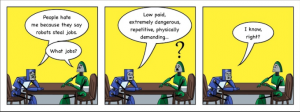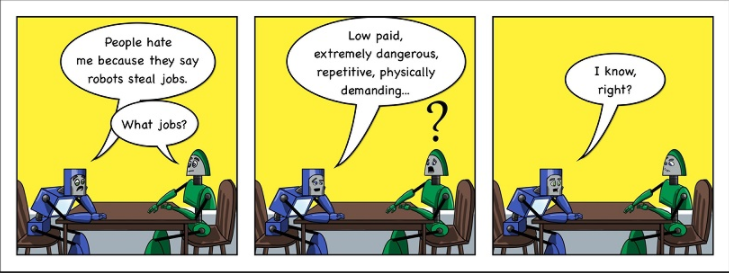
Artificial Intelligence (AI) is not only finding its usage in almost all the existing business processes but also, enabling business stakeholders and entrepreneurs to think of innovative ideas to come up with new business processes and gain competitive advantage. Robotic Process Automation (RPA) makes use of AI to make intelligent decisions and automate end-to-end business processes to achieve human-like efficiency and effectiveness, thereby, augmenting humans to be more productive and achieve more in less time.
Talent acquisition is a business domain where there are many business processes which are repetitive in nature and could make use of AI for business process automation and achieve the goal of greater efficiency and scale. The following are some of these repetitive processes:
- Hunting candidates looking for change using phone calls
- Gathering candidates experience over phone calls
- Scheduling the phone calls
- Reminders & feedbacks
However, the above does not imply that existing jobs for talent acquisition staff will be lost. Rather, AI will make the talent acquisition staff more productive. The comic below represents the fear around AI replacing the job.

Robots for Talent Acquisition (Image Credit: Robohub)
In relation to above, AI is going to make a great impact in the field of talent acquisition in some of the following manners.
- Automate various different business processes including some of the following:
- Candidate Shortlisting: Screen and shortlist potential candidate profiles based on the job description. This is a machine learning classification problem.
- Hunt the Candidates: Hunt the candidates looking for a job by making the phone calls. This will be achieved by using text-to-speech audio (Google Cloud text-to-speech/speech-to-text/NLP, Amazon Polly/Transcribe/Comprehend) calls integrated with the IVR based system such as Genesys, Twilio, Nexmo etc.
- Data Gathering: Voice (Text-to-speech and speech-to-text) technologies can be used to gather candidates response related to their profile.
- Interview Scheduling: Schedule interviews by selecting most appropriate interviewers based on their availability and match with the candidate profile. This is a machine learning classification problem.
- Interview Reminders: Remind candidates over the phone call for upcoming interviews.
- Interview Analysis and Recommendations: Analyze the interview recordings and recommend the candidature for next round of interviews. This can be achieved using speech-to-text services and machine learning classification algorithms.
- Interview Feedback: Voice (Text-to-speech and speech-to-text) technologies can be used to give feedback to the candidates or gather feedback from the candidates.
- Enable talent acquisition staff to be more productive by processing a large number of candidates in same time.
AI-based automation as mentioned above can be achieved using some of the following cloud services from Google and Amazon:
- Text-to-speech conversion
- Speech-to-text conversion (Automatic speech recognition)
- Sentiment analysis
- Machine learning services
Other cloud services which will help achieve RPA are some of the following:
- Serverless functions (AWS Lambda, Google Cloud Functions)
- Cloud Storage (AWS S3, Google Cloud Storage)
- Cloud databases (AWS RDS, Google CloudSpanner)
- Compute servers (AWS EC2/ECS/Elastic Beanstalk, Google AppEngine/Compute)
We are developing some of the above-mentioned cloud-based solutions for talent acquisition based on AI & RPA. Please feel free to reach out if you have questions or would like to know the details.
- The Watermelon Effect: When Green Metrics Lie - January 25, 2026
- Coefficient of Variation in Regression Modelling: Example - November 9, 2025
- Chunking Strategies for RAG with Examples - November 2, 2025

I found it very helpful. However the differences are not too understandable for me